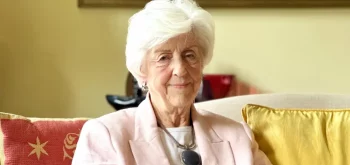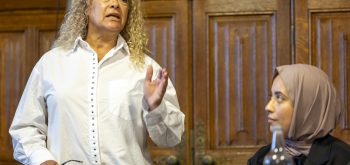Miscarriage of justice campaigners are threatening the Lord Chancellor with legal action for refusing to intervene in the courts blocking of joint enterprise appeals.
In a letter before action shared with the Justice Gap, Joint Enterprise Not Guilty By Association (JENGBA) are challenging the ‘continuing failure’ of Robert Buckland to respond to recommendations from the all-party parliamentary group on miscarriages of justice (APPG) that the government’s law reform body, the Law Commission, should urgently remove the ‘substantial injustice’ test imposed by the Court of Appeal.
In 2016 the Supreme Court ruled in the Jogee case that the law on joint enterprise had ‘taken a wrong turn’; however, that seemingly landmark judgment did not prompt the predicted wave of successful appeals as the court also asserted that new appeals needed demonstrate a ‘substantial injustice’ prior to any leave for appeal being granted. That new hurdle has effectively closed off the possibility of successful appeals in joint enterprise cases.
The letter before action quotes a number of appeals experts including Henry Blaxland QC who described joint enterprise as ‘one of the greatest sources of injustice which is still festering within the system’. Felicity Gerry QC said that the Court of Appeal’s imposition of the substantial injustice threshold ‘effectively neuters the CCRC’.
Ministers gave short shrift to the APPG’s ‘Westminster Commission’ report into the miscarriages justice watchdog, the Criminal Cases Review Commission – as reported here. The JENGbA letter before action is directed at a correspondence from the Ministry of Justice dated April 30 confirming that the government ‘currently have no plans to review or amend legislation on the appeals process’. ‘The existing legislation already allows the CCRC to refer a case to the Court of Appeal in exceptional circumstances,’ it continued. ‘It also allows for an appeal outside the 28 day time limit if the court considers there are justifiable reasons for the delay.’
As reported last month, the CCRC expressly gave its backing for the Law Commission to consider a change in law to remove the ‘substantial injustice’ test. Within a year of Jogee, the watchdog received 99 applications citing the ruling but only one case has been overturned. ‘We support the suggestion that the Law Commission considers the issue of ‘substantial injustice’ as part of a wider review of the Court of Appeal’s test and, by implication, our statutory test,’ the CCRC said.
The JENGbA letter calls on the Lord Chancellor to refer the matter to the Law Commission ‘as recommended by the APPG, Justice Affairs Select Committee and the CCRC’.
‘During all our years of campaigning JENGbA have written to seven secretaries of state for justice asking them to do the right thing by wrongfully convicted prisoners; mostly we have been ignored,’ commented Gloria Morrison, JENGbA’s co-founder. ‘Even though our intervention in Jogee was vindicated by the Supreme Court justices agreeing that the law had taken a “wrong turn” in 1984. Only one appeal post-Jogee has been allowed – John Crilly – even though JENGbA are supporting well over one thousand prisoners desperate to have an appeal heard and justice served.’
‘We can forgive the criminal justice system for the invention and implementation of the joint enterprise doctrine; but we can never forgive them for not rectifying this monstrous injustice when they knew it was wrong.’
Terry Smith, joint enterprise lifer and JENGbA supporter
‘Ministers simply believe that ignoring a campaign as crucial as JENGbA’s will make us give up and go away. We’ve been compelled to serve a letter before action to the Mr Buckland which he has a week to respond to. If he ignores it, we will judicially review the Ministry of Justice,’ Morrison says. “it’s a David and Goliath task, and we’ll need to crowdfund to do it, but it’s all part of our campaign for justice for innocent joint enterprise prisoners. The legal action is being brought by the solicitor Dean KIngham who was behind the judicial review of the CCRC in the Gary Warner case.






